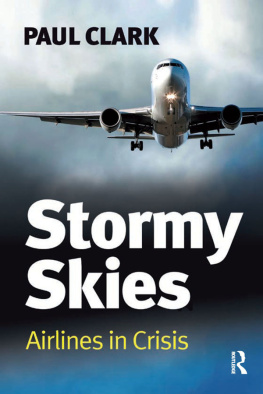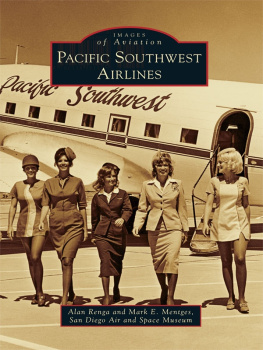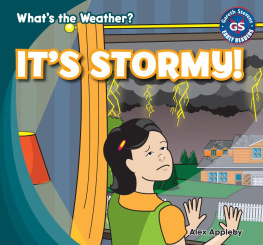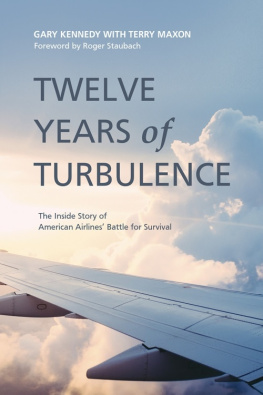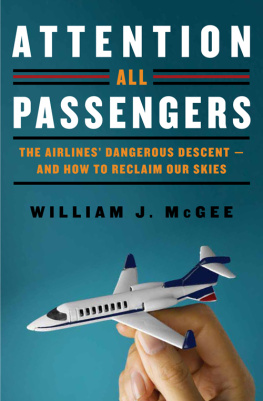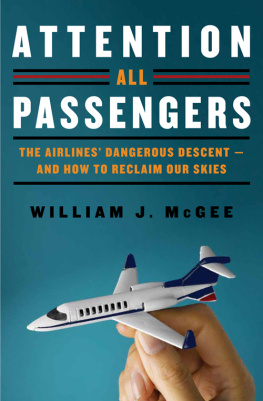Paul Clark - Stormy Skies: Airlines in Crisis
Here you can read online Paul Clark - Stormy Skies: Airlines in Crisis full text of the book (entire story) in english for free. Download pdf and epub, get meaning, cover and reviews about this ebook. year: 2010, publisher: Taylor and Francis, genre: Politics. Description of the work, (preface) as well as reviews are available. Best literature library LitArk.com created for fans of good reading and offers a wide selection of genres:
Romance novel
Science fiction
Adventure
Detective
Science
History
Home and family
Prose
Art
Politics
Computer
Non-fiction
Religion
Business
Children
Humor
Choose a favorite category and find really read worthwhile books. Enjoy immersion in the world of imagination, feel the emotions of the characters or learn something new for yourself, make an fascinating discovery.
- Book:Stormy Skies: Airlines in Crisis
- Author:
- Publisher:Taylor and Francis
- Genre:
- Year:2010
- Rating:5 / 5
- Favourites:Add to favourites
- Your mark:
- 100
- 1
- 2
- 3
- 4
- 5
Stormy Skies: Airlines in Crisis: summary, description and annotation
We offer to read an annotation, description, summary or preface (depends on what the author of the book "Stormy Skies: Airlines in Crisis" wrote himself). If you haven't found the necessary information about the book — write in the comments, we will try to find it.
Stormy Skies: Airlines in Crisis — read online for free the complete book (whole text) full work
Below is the text of the book, divided by pages. System saving the place of the last page read, allows you to conveniently read the book "Stormy Skies: Airlines in Crisis" online for free, without having to search again every time where you left off. Put a bookmark, and you can go to the page where you finished reading at any time.
Font size:
Interval:
Bookmark:
STORMY SKIES
For Judith, who has stuck with me through thick and thin
Airlines in Crisis
PAUL CLARK

First published 2010 by Ashgate Publishing
Published 2016 by Routledge
2 Park Squre, Milton Park, Abingdon, Oxon OX14 4RN
711 Third Avenue, New York, NY 10017, USA
Routledge is an imprint of the Taylor & Francis Group, an informa business
Copyright Paul Clark 2010
Paul Clark has asserted his right under the Copyright, Designs and Patents Act, 1988, to be identified as the author of this work.
All rights reserved. No part of this book may be reprinted or reproduced or utilised in any form or by any electronic, mechanical, or other means, now known or hereafter invented, including photocopying and recording, or in any information storage or retrieval system, without permission in writing from the publishers.
Notice:
Product or corporate names may be trademarks or registered trademarks, and are used only for identification and explanation without intent to infringe.
British Library Cataloguing in Publication Data
Clark, Paul, 1954
Stormy skies : airlines in crisis.
1. Aeronautics, Commercial. 2. Airlines--Management.
3. Financial crises.
I. Title
387.7'068-dc22
Library of Congress Cataloging-in-Publication Data
Clark, Paul, 1954
Stormy skies : airlines in crisis / by Paul Clark.
p. cm.
Includes index.
ISBN 978-0-7546-7887-8 (hardback)
1. Airlines. 2. Airlines--Customer services. I. Title.
HE9761.1.C55 2010
387.7--dc22
2010020874
ISBN: 9780754678878 (hbk)
The chapter titles are derived from song titles recorded by The Beatles.
I Should Have Known Better
From the album A Hard Days Night, Parlophone, released 10 July 1964.
Tomorrow Never Knows
From the album Revolver, Parlophone, released 5 August 1966.
Love Me Do
Single, Parlophone, released 5 October 1962.
I Want To Hold Your Hand
Single, Parlophone, released 29 November 1963.
You Never Give Me Your Money
From the album Abbey Road, Apple, released 26 September 1969.
With A Little Help from My Friends
From the album Sergeant Peppers Lonely Hearts Club Band, Parlophone, released 1 June 1967.
Strawberry Fields Forever
Single, Parlophone, released 17 February 1967.
Here Comes the Sun
From the album Abbey Road, Apple, released 26 September 1969.
All songs were written by John Lennon and Paul McCartney, except Here Comes the Sun, which was written by George Harrison.
I must thank my old friend and colleague Stephen Shaw for suggesting that I tackle the task of writing this book. To be perfectly frank, I was not particularly keen to take it on at first, as I could already imagine the anguish of slipped deadlines and lost family weekends. So it is with pleasure, mixed with relief, that I can now thank Guy Loft, Carolyn Court, Margaret Younger, Gillian Steadman and all the editorial and production staff at Ashgate Publishing for the amazing patience and kindness shown to their lazy author. Happily, the days when I would freeze in terror and guilt when an e-mail from Guy appeared in my Inbox are now in the past. I also thank Linda Cayford for her proofreading skills. Lindas eagle eyes and helpful suggestions are much appreciated.
The ideas and opinions in this book are not mine alone. I have been fortunate in persuading a small army of industry figures to share their own views. They are Jim Barlow of Sabre, Christi Day of Southwest Airlines, Professor Peter Belobaba of MIT, Richard Dyer of Friends of the Earth, Professor David Keith of the University of Calgary, Paul Finklestein of Pratt & Whitney, Manique Gunasekera of Sri Lankan Airlines, Tim Jeans of Monarch Airlines, Patrick Bianquis of Air France, Hubert Horan, Professor Robert Essenhigh of the Ohio State University, Tony Tyler of Cathay Pacific Airways, Patricio Jaramillo of LAN Airlines, Paul Griffiths of Dubai World Airports and Randy Tinseth of Boeing. To all of them I say, Thank you.
Often, discussions with contributors only took place thanks to the patience and generosity of assistants and secretaries, who were unfailingly courteous to me. I am grateful to Nancy St Pierre, Susanna Fernandes, Karine Delrieu, Kitty Cheung, Thomas Brabant and Sherry Nebel.
Several organisations have given permission for material under their control to be reproduced. I would like to thank John Pritchard of Worldmapper, whose cartograms reproduced in as Brett Serjeantson of MediaMiser, Lisa Marsala of Interbrand, Mary Pat Clark of the Pew Research Center for the People and the Press, and Jason McGeown of Maplecroft who kindly allowed the reproduction of research data.
I would especially like to mention Alan H. Hess of Hess Travel, who penned the exquisite comedy sketch about revenue management and gave permission for it to be quoted in , and musician Dave Carroll, who generously found time during a busy touring schedule to recount the full story behind United Breaks Guitars.
In addition, I have called upon former colleagues and lifelong friends for their contributions. They are Louis Busuttil, Daniel Sallier, Philippe Fonta and Christian Scherer of Airbus, Nico Buchholz of Lufthansa and Captain Chris Schroeder of Qatar Airways.
There is another ingredient necessary to sustain an author through dark days of frustration, doubt and despair. Close friends have rallied round and, despite being spread around the globe, have always been on hand to offer encouragement and a metaphorical couch. I am grateful to Anas Marzo-Costa, Patricia Bausor, Erin Egan-Mesny and Katia Tripod for encouragement and laughter.
Lastly, and most of all, I thank Judith, Christopher and Robin for their faith in me. Life was hard during the period when this book was written but, when I needed them most, they were always there to keep me going.
I am old enough to remember every major airline economic crisis since the jet age. This is not a boast, nor is it something that I particularly wish to celebrate, as my confession is merely a disturbing reminder of the ever-quickening passage of time. But I have witnessed history repeating itself time and time again. The temptation to write about the most recent airline crisis, which can be traced back to the autumn of 2008 and has lasted well into 2010, was thus very strong.
In describing this book, I need first to say what it is not. Stormy Skies is not a compendium of startling new business models or processes offering an antidote to the ills of the crisis. Neither is it a blow-by-blow account of the downfall of the many airlines that have collapsed. That would be too depressing and serve no useful purpose. Rather, the book aims, through a series of essays, to shine a light on key commercial challenges that the airline industry is confronting. I offer no guarantees that airline executives who decide to apply any of my ideas, or those of my contributors, will emerge from the next downturn unscathed. However, I do believe that the subjects addressed in Stormy Skies are highly relevant to todays airline business environment and should not be overlooked.
As I have no affiliation with any airline, aircraft manufacturer, airport, supplier, user group or industry regulator, I have felt free to express my views in an objective way. This is refreshing for me, but I know that I am not going to please everybody. Indeed, I set out to be a little provocative at times and make no apology for so doing.
Next pageFont size:
Interval:
Bookmark:
Similar books «Stormy Skies: Airlines in Crisis»
Look at similar books to Stormy Skies: Airlines in Crisis. We have selected literature similar in name and meaning in the hope of providing readers with more options to find new, interesting, not yet read works.
Discussion, reviews of the book Stormy Skies: Airlines in Crisis and just readers' own opinions. Leave your comments, write what you think about the work, its meaning or the main characters. Specify what exactly you liked and what you didn't like, and why you think so.

